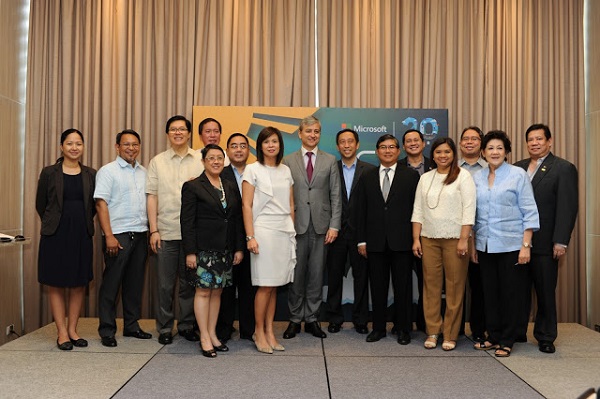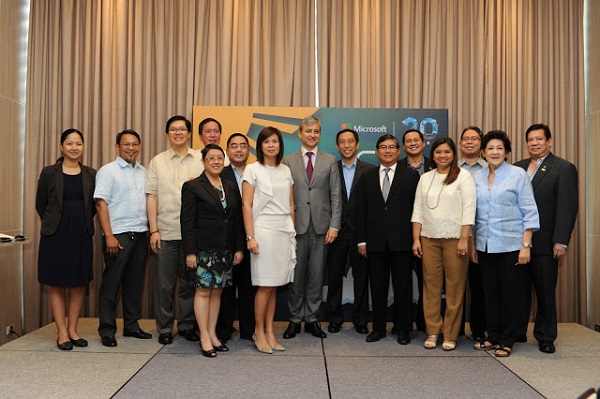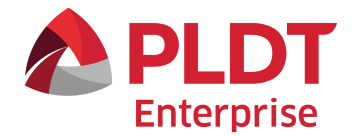Microsoft’s ICT Manifesto Empowers Philippine IT Organizations to Campaign for the Advancement of Society Through Technology

Date:
June 16, 2016
Three of the country’s leading ICT organizations are standing behind Microsoft’s Technology Manifesto months after its launch in the Philippines last November 2015.
United with Microsoft’s vison for a technology-led Philippines are the IT &Business Processing Association of the Philippines (IBPAP), CIO Forum Foundation, and Internet Society – Philippine Chapter.
Microsoft, in partnership with Lee Kwan Yew School of Public Policy and Asian Institute of Management, together with stakeholder from various private and public sectors, developed ‘ICT for Shared Prosperity: A Technology Manifesto for the Philippines, 2016 and Beyond’. It identifies national challenges and issues that need to be addressed, and key technology pillars that can help the country ultimately leapfrog technological development:
- Preparing people for the future through 21st century education
- Building a more equitable society by ensuring connectivity for all
- Leveraging ICT to enhance competitiveness in a mobile-first, cloud-first world
- Moving towards a 21st century government that uses technology to become more trusted, more efficient, and more responsive.
- Providing a safe and secure online environment for citizens, especially children, who represent the country’s future
“Among the agenda points in the manifesto is the continued support of the development of ICT-driven industries like the IT-BPM sector—which it described as one of the strongest drivers of the economy,” said Jose Mari Mercado, President and CEO of IBPAP. “But in order to build on its current leadership of the global outsourcing industry, the country must develop its ICT environment and build IT systems that are at par with the rest of the world.”
The IBPAP has been for the promotion of the competitive advantages and the growth potential of the country in industries like education, legislation, and security—all of which are included in the ICT Manifesto.
The Manifesto also implores the government to run toward the goal of a 21st century government in a race, as compared to our more advanced APEC neighbors, where we have already been left behind in terms of IT development and overall technological competitiveness. Through these efforts, the government will be able to provide 21st century education to all its children thus cementing the future’s certainty of economic growth and development.
Winthrop Yu, Chair of the Internet Society – Philippines, underscores the undeniable importance of investing in systems to ensure quality Internet services to Filipinos. “There is particularly the need to adopt more open policies and regulatory frameworks and encourage investment in Internet infrastructure. The government should ensure that such infrastructure is open, transparent, non-discriminatory and accessible to all,” he said.
“We fully endorse the policy reforms of the ICT Manifesto, which articulates key points that closely align with our organization’s vision of ‘Internet for All’. The ICT Manifesto offers concrete solutions to rectify the grim picture of the country’s ICT landscape, in areas that are key such as infrastructure, affordability and accessibility, and digital literacy and education,” said Yu.
George C. Kintanar, Chairman of the CIO Forum Foundation, also expressed the organization’s support for the Manifesto.
“The benefits of widespread adaptation and advancement of ICT are broad. It can advance transparency and accountability, as well as increase efficiency in the various systems and processes of government,” said Kintanar.
By inspiring and empowering industry leaders to move in the crusade for the country’s future through an improved government driven by technology, Microsoft unifies industries in the mission to do more for a shared prosperity.
“We believe that “Shared Prosperity: An ICT Manifesto for the Philippines for 2016 and Beyond”, prepared in partnership with the ICT industry, is an important and timely declaration that policymakers should adopt as a key element of national development roadmap of the next administration,” Kintanar concluded.
To know more about how the Philippines can leverage on ICT for economic progress, the full version of the Manifesto can be downloaded via http://bit.ly/ICTManifestoPH.
Source: http://goo.gl/dxIIwg














